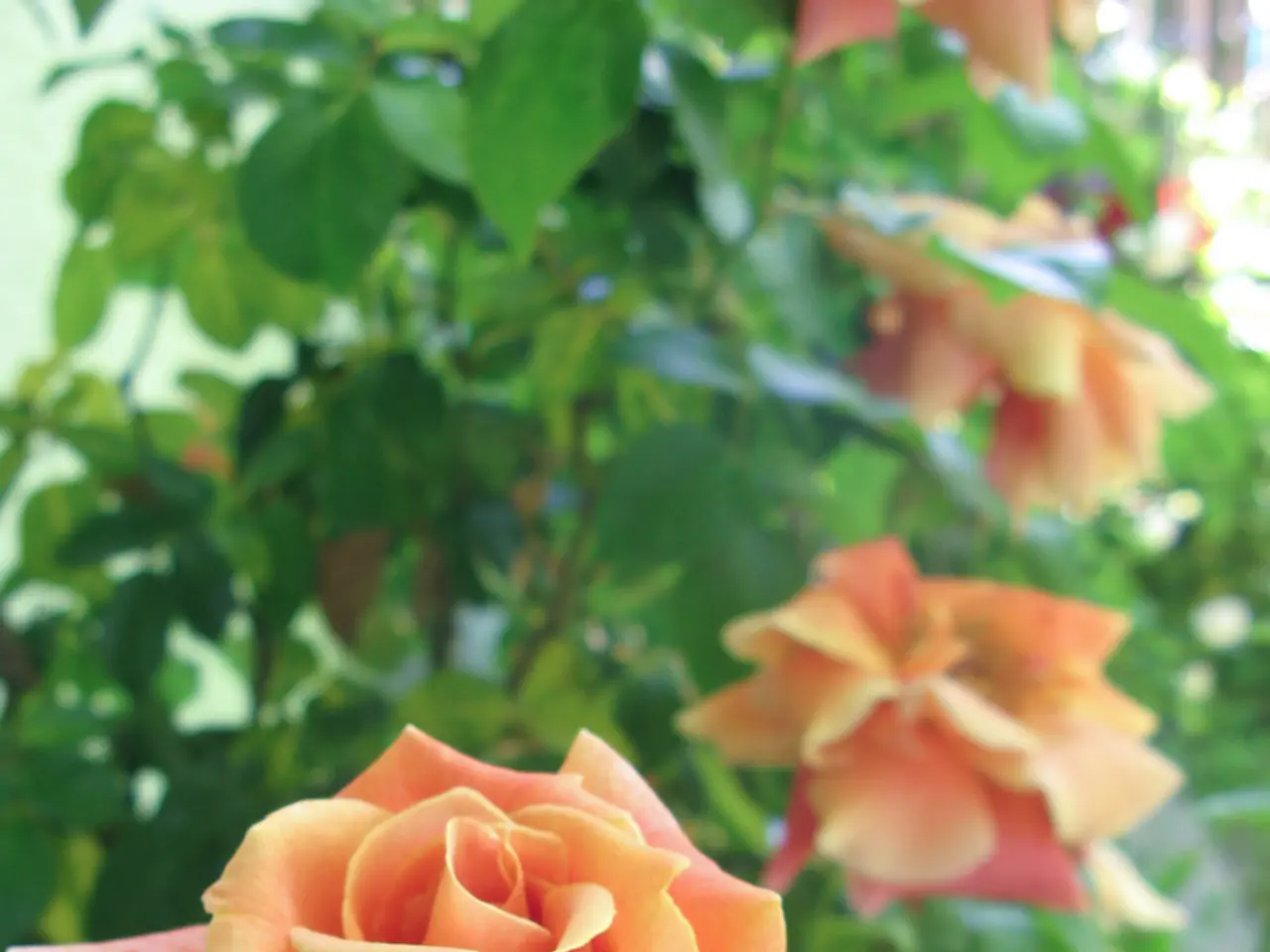Important Pest Management in Rose Gardens
In the heart of every beautiful rose garden lies a delicate balance between the vibrant blooms and the pesky pests that threaten their health. Fortunately, there are numerous natural methods available to maintain a thriving rose garden while keeping pests at bay.
One such method is the use of insecticidal soap, a potent ally in the fight against aphids. Aphids, tiny insects found in rose gardens, can cause damage by sucking the juice out of roses, making them weak and unhealthy. To combat these pests, insecticidal soap can be mixed with water and sprayed on the affected areas, particularly on the undersides of leaves. Repeat the process every few days until the aphids are gone.
Aphids leave behind a sticky substance called honeydew, which attracts ants and can lead to the growth of sooty mold. To address this issue, regular monitoring for pests is crucial. Check under leaves, look for discolored leaves, and watch for sticky residue on leaves as signs of aphid infestation.
For a more eco-friendly approach, homemade solutions like soapy water or neem oil can be used. Neem oil, when mixed with a mild soap (0.5–1% concentration), both kills aphids and deters feeding with minimal impact on beneficial insects. Neem can also be used as a soil drench to deter aphids systemically.
Companion planting is another strategy for pest control. Certain flowers or herbs, such as marigolds, chives, nasturtiums, garlic, and dill, can be planted alongside roses to keep pests away. Marigolds and garlic, for instance, are known to repel aphids and nematodes.
Encouraging beneficial insects like ladybugs, lacewings, and parasitic wasps also naturally controls aphids and other pests. These insects feed on pests harming roses, promoting healthier plants.
Watering roses deeply but infrequently encourages deep root growth, while a layer of mulch around roses helps retain moisture and suppress weeds.
Mildew, a white, powdery fungus that loves to show up in humid weather and can stunt the growth of rose plants and ruin blooms, can be controlled by improving air circulation by pruning and spacing roses properly, removing infected debris promptly, and applying organic fungicides like sulfur or neem oil-based sprays.
In summary, combining insecticidal soap or neem oil sprays, companion planting with repellent and beneficial insect-attracting plants, physical controls like water sprays and pruning, and promoting natural predators provides an integrated, eco-friendly approach to managing aphids and powdery mildew in rose gardens. And remember, a balanced fertiliser is used during the growing season to provide nutrients for your roses.
- To maintain a balanced lifestyle for roses, consider using natural methods like insecticidal soap against pests such as aphids, which can be found thriving in home-and-garden settings like rose gardens.
- For a sustainable home-and-garden lifestyle, incorporate practices like companion planting with flowers or herbs like marigolds and garlic to naturally keep pests like aphids away from rose gardens, promoting a thriving rose-garden lifestyle.




